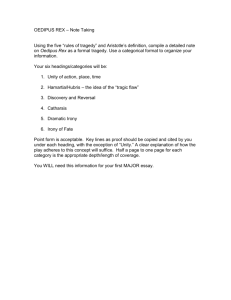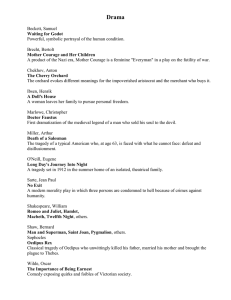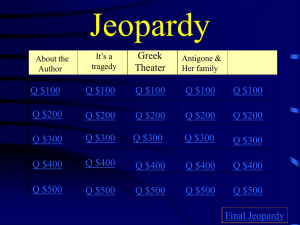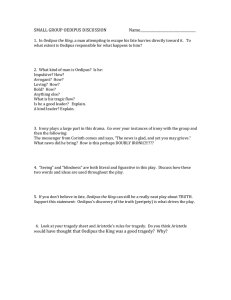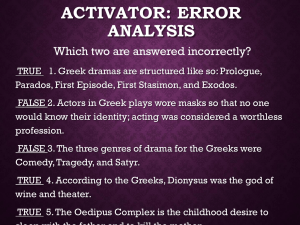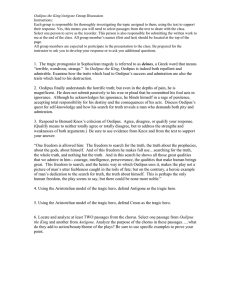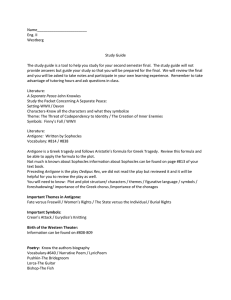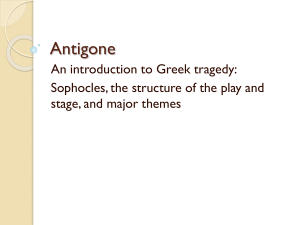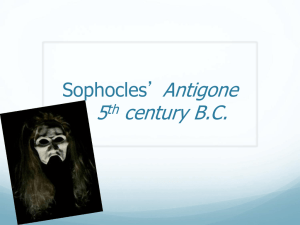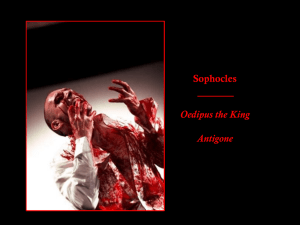12th Grade English 1st Semester TRAGEDY: Texts, Essential
advertisement
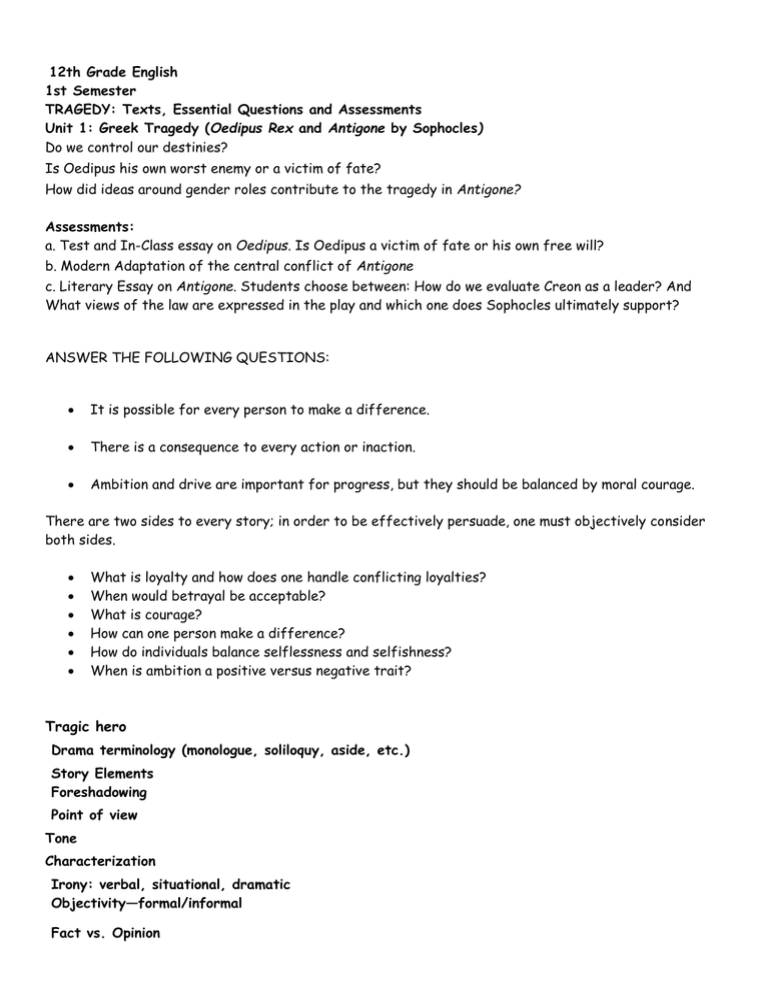
12th Grade English 1st Semester TRAGEDY: Texts, Essential Questions and Assessments Unit 1: Greek Tragedy (Oedipus Rex and Antigone by Sophocles) Do we control our destinies? Is Oedipus his own worst enemy or a victim of fate? How did ideas around gender roles contribute to the tragedy in Antigone? Assessments: a. Test and In-Class essay on Oedipus. Is Oedipus a victim of fate or his own free will? b. Modern Adaptation of the central conflict of Antigone c. Literary Essay on Antigone. Students choose between: How do we evaluate Creon as a leader? And What views of the law are expressed in the play and which one does Sophocles ultimately support? ANSWER THE FOLLOWING QUESTIONS: It is possible for every person to make a difference. There is a consequence to every action or inaction. Ambition and drive are important for progress, but they should be balanced by moral courage. There are two sides to every story; in order to be effectively persuade, one must objectively consider both sides. What is loyalty and how does one handle conflicting loyalties? When would betrayal be acceptable? What is courage? How can one person make a difference? How do individuals balance selflessness and selfishness? When is ambition a positive versus negative trait? Tragic hero Drama terminology (monologue, soliloquy, aside, etc.) Story Elements Foreshadowing Point of view Tone Characterization Irony: verbal, situational, dramatic Objectivity—formal/informal Fact vs. Opinion Social and historical context Rhetorical Strategies Ethos, pathos, logos—reason/logical fallacies Transitions Claim and counterclaim Effective, supporting, credible evidence Citation Critical Skills: Cite examples of the three types of irony Evaluate characteristics of a tragic hero Analyze how ideas are developed Determine an author’s point of view and purpose Identify bias Compare and contrast content in various mediums Analyze use of rhetorical devices Evaluate the credibility of various sources Establish and maintain a formal and objective tone Write an argumentative thesis statement

